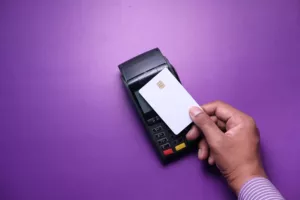Payment processing today is a confusing sphere, and as small business owners, we are often the targets of people looking to make extra for themselves. Leaving us with a tool that doesn’t cater to our customers, staff, or bottom line. We at Process Payments Now have picked six factors you should consider whether you already have a processor or are shopping for something different.
My name is Nigel Groce-Wright and I have been working with businesses in the US now for close to a decade. I understand the finer details of what a business needs when choosing a payment processor.
In this article, I will discuss six key factors to consider when choosing a payment processor. I will also discuss why it is a good idea to pick one processor over another. Finally, I will recommend what you need to do to start accepting credit card payments at your business today!
What Is A Payment Gateway?
A payment gateway is an application made up of a combination of software and hardware, where the customer renders their credit or debit card, the information is securely transferred to the credit card processor’s network and authorized or denied. Once the processor approaches the information the transaction is approved. The basics surrounding processing are fairly straightforward but there are other key elements you want to consider before taking the jump.
What Should You Consider When Choosing A Payment Gateway?
It is difficult to offer a one-size fits all solution as many payment processors promise. In reality, each business is different. For example, at Baxter’s Bar & Grill they might need a single POS for their bar where customers can come up, place orders, and build a tab. However, The Back Door might need a more specialized solution with multiple points of sale in different configurations. This could include table-side payments or tickets printing at bars based on the stock of each. Each business is different and a payment provider that offers a one size fits all solution is not always the best choice.
When you are choosing a payment gateway for your online or brick and mortar business, there are a few things you should consider.
1. Online or In-Person Business
The first, and most important, thing to consider is how your customers pay you. Do all your customers pay you at your location? Do you take payments over the phone? Do you need to sync your website inventory with the inventory in-store to allow customers to purchase from your most up-to-date catalog?
You have to meet your customers where they want to be met. It is important to figure out how your customers prefer to purchase from you and find a payment solution that will fit best within that system.
2. User Experience
Always at the forefront of our operations is customer satisfaction, so we have to be sure that the final step of their experience is an easy one. Having a processor that can integrate between physical and virtual terminals will give your customers the options they prefer. Whether your shop is physical or e-commerce a processor that makes the purchase point seamless will allow your customers to pay when and how they prefer.
3. Cost to Process
Close behind customer satisfaction is cost when making decisions as a small business owner. Definitely check out last week’s post on fixed-rate versus tiered pricing models, but in order to keep our shops on track for greater revenue we have to make the right choice with cost. E-commerce shops and physical stores will have different needs from processors however, we’re all bike shops and have the same structure of product supply.
Asking the questions and negotiating for the right price will be something you will want to be diligent on and leave no stone unturned. Thankfully your friends at Process Payments Now are always here to help you evaluate the options available to you.
4. Additional Fees
Carefully examining the services you’re being offered by a prospective payment processor is critical as hidden fees are an element at play in the processing realm. Transaction fees are the element we’ve discussed, but start-up fees, hardware cost, service fees, and cancellation fees are all common tactics some processing companies use to hide additional fees from you. Asking the agent to explain each fee in detail before signing on for their processing service will be essential in increasing your shops’ profits.
5. Data Security
Perhaps you remember through the years, many large companies have had data breaches exposing their customers to theft and fraud. The last thing we want is to be the shop who lost their customer data, you’ll see those folks out riding of course. To ensure we keep our riders’ information safe, we want to make sure our processor offers encryption, EMV chip card processing, fraud prevention, and is the security Payment Card Industry (PCI) compliant.
6. Contract Obligations
The dreaded sales meeting when the contract comes out, and the pens are shoved in your face. This is the key moment that will save your shop from letting your profits go to someone else. Going line by line with the contract in front of you will be grueling but catching things like start-up fees, annual fees, and cancellation fees will all save you money and give you peace of mind. Saving the rest of your effort to improve your shop, attend events, and sell your services.
Final Thoughts
Small businesses all have their own struggles, but your business is in a sphere that is a truly unique one with unique needs. We know this, and have the experience and network to get our members plugged in with the right products designed for their particular needs. Let’s stop paying too much for credit card processing. Join the Process Payment Now revolution and find the best option for your business. Book a call with us today!




